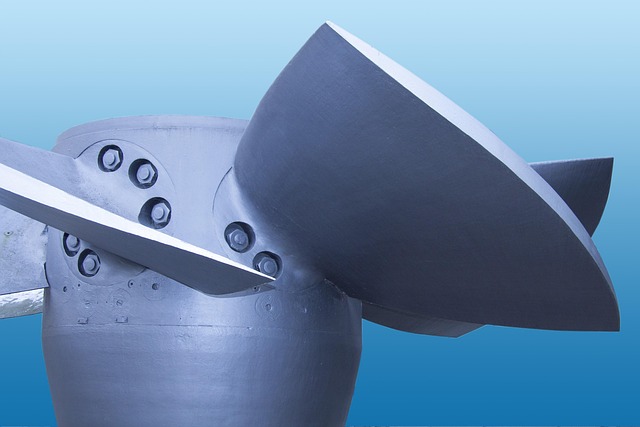Oregon's multi-layered court system ensures justice and resolves disputes, including those related to grandparent rights. District courts handle various cases, from traffic violations to family matters, with the Court of Appeals reviewing lower court decisions and the Supreme Court ensuring uniform legal interpretations. Understanding this process is vital for grandparents seeking visitation or custody, involving recognizing relevant laws, meeting requirements, presenting a strong case, and staying informed throughout the legal journey. Key steps include consulting an attorney, filing a petition, providing evidence, and crafting compelling arguments to navigate this structured approach effectively.
In Oregon, grandparent rights are a crucial aspect of family law, offering a legal framework to maintain familial connections. Understanding the state’s court system is essential for grandparents seeking access and custody. This comprehensive guide navigates the Oregon court process for grandparents, from the basics of the legal system to presenting a case and post-decision outcomes. By exploring petitions, evidence, and court requirements, this article ensures grandparent rights are both protected and upheld within the Oregon judicial system.
- Understanding Oregon's Court System: An Overview
- Grandparent Rights in Oregon: Legal Basics
- Navigating the Court Process for Grandparents
- Petitions and Filing Requirements in Grandparent Cases
- Presenting Your Case: Evidence and Arguments
- Post-Court Decisions: What Happens Next for Grandparents?
Understanding Oregon's Court System: An Overview

Oregon’s court system is a complex web designed to uphold justice and resolve disputes. Understanding this process is crucial for anyone navigating it, especially when grandparent rights are at stake. The system consists of several levels, each with specific roles and procedures. At the foundation lies the district courts, which handle a wide range of cases from minor traffic infractions to serious felonies. These courts also play a significant role in family matters, including custody and visitation disputes involving grandparents.
Upon appeal, cases can ascend to the Oregon Court of Appeals, which reviews decisions made by lower courts. In instances where a case involves grandparent rights, this court scrutinizes whether the trial judge adequately considered the best interests of the child and the unique circumstances of the grandparents’ relationship with the minor. Ultimately, the Supreme Court of Oregon stands as the highest authority, ensuring consistency in legal interpretations across the state. Navigating this court process requires careful consideration of applicable laws and a deep understanding of grandparent rights within Oregon’s legal framework.
Grandparent Rights in Oregon: Legal Basics

In Oregon, grandparent rights are protected under state law, offering a structured framework for grandparents to maintain relationships with their grandchildren. The legal process for grandparent rights involves navigating the Oregon court system, which establishes specific procedures and criteria for seeking visitation or custody. Understanding the court process is crucial for grandparents aiming to exercise their rights effectively.
Grandparents interested in pursuing legal action should familiarize themselves with the relevant Oregon laws, rules, and regulations. This includes recognizing the types of cases that fall under grandparent rights jurisdiction, such as visitation disputes or requests for permanent custody. By delving into the court process, grandparents can ensure they meet all legal requirements, present a strong case, and ultimately increase their chances of positive outcomes in court.
Navigating the Court Process for Grandparents

Navigating the Oregon court process to assert or defend grandparent rights can be a complex and emotional journey. The first step is to understand that grandparent rights in Oregon are governed by specific laws, which allow grandparents certain visitation privileges with their grandchildren if the parents agree or if there’s a legal basis for intervention. This often begins with reaching out to an experienced family law attorney who specializes in grandparent rights cases. They can guide you through the initial filing process and help prepare the necessary documentation.
The court process typically involves filing a petition, which outlines the reasons for seeking visitation or custody. This may include instances of limited or no contact between grandparents and grandchildren, significant changes in family dynamics, or parental incapacity. Once filed, the case will be assigned to a judge who will review the evidence and make decisions based on what is in the best interest of the child. Regular court appearances might be required, so it’s crucial to stay informed, organized, and prepared for each step of the legal process.
Petitions and Filing Requirements in Grandparent Cases

When pursuing grandparent rights in Oregon, understanding the court process is crucial. The first step involves filing a petition with the appropriate court, outlining the reasons for seeking visitation or custody. This petition must include specific details about the relationship between the grandparents and the child, as well as any relevant facts that support the request.
Navigating the legal process in Oregon requires adhering to strict filing requirements. These may include providing evidence of a pre-existing relationship with the grandchild, demonstrating the child’s well-being is not negatively impacted by potential grandparent involvement, and addressing any existing parental rights or custody arrangements. Ensuring all documents are accurately completed and filed promptly is essential to moving forward in the court process for grandparent rights.
Presenting Your Case: Evidence and Arguments

When presenting your case in an Oregon court regarding grandparent rights, it’s crucial to understand the legal process and gather strong evidence. The first step is to compile relevant documents that support your claim, such as court orders, birth certificates, and any historical records demonstrating a significant relationship with the grandchild. This includes photos, letters, and shared activities that can prove your involvement in the child’s life.
During the court process, you’ll need to craft compelling arguments highlighting the benefits of granting grandparent rights. Focus on the positive impact your presence can have on the grandchild’s life, emphasizing stability, love, and support. Presenting a well-organized case with solid evidence and logical arguments will strengthen your position in the Oregon court process for grandparent rights.
Post-Court Decisions: What Happens Next for Grandparents?

After a decision is made in court regarding grandparent rights, it’s important to understand what happens next. The Oregon court process for grandparents involves several steps as they navigate their legal options and attempt to build or maintain a relationship with their grandchildren. Post-court decisions often involve enforcement of the court order, which may include specific visitation schedules, custody arrangements, or other terms designed to protect the best interests of the child.
Grandparents should be prepared for ongoing communication with lawyers, social workers, or other involved parties to ensure compliance with the court’s ruling. They may also need to adapt their expectations and behaviors based on the new legal framework. Understanding the Oregon court process is crucial for grandparents seeking to uphold their rights while fostering a healthy relationship with their grandchildren.














